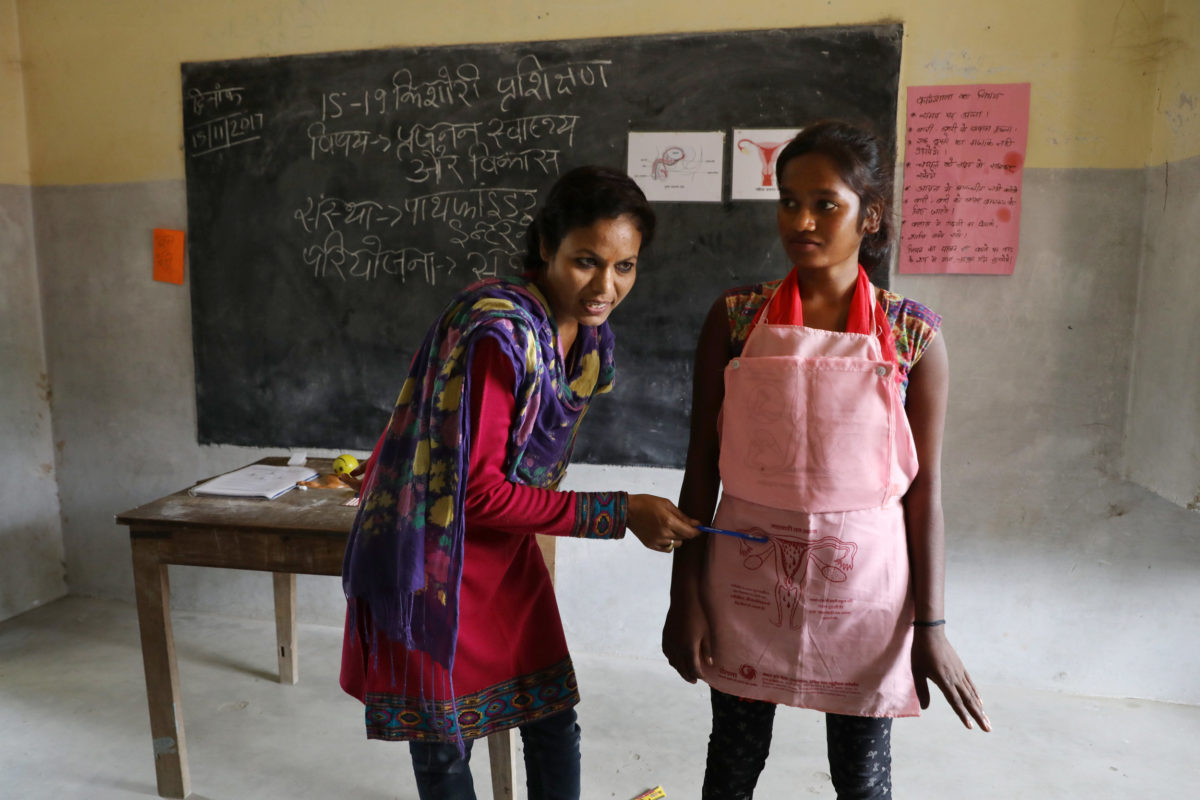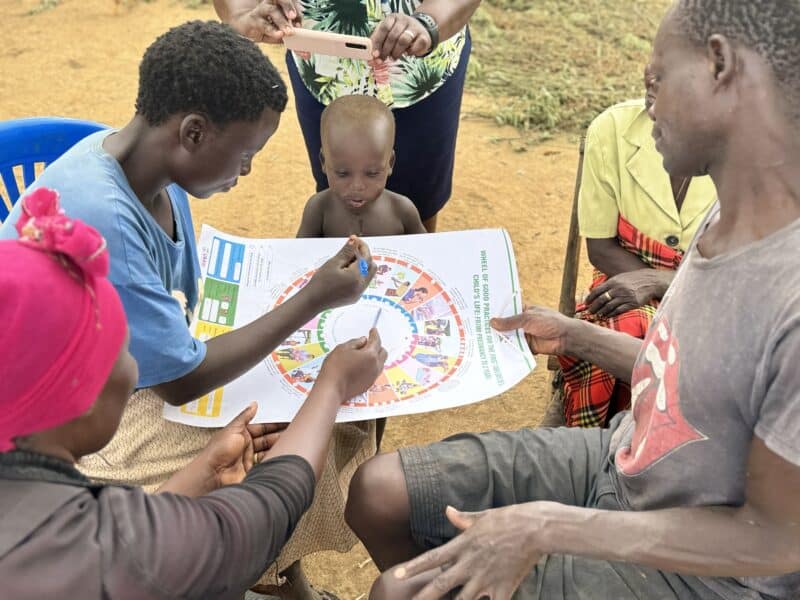Much of the focus of family planning in low- and middle-income countries in recent decades has been on delivering services in clinics and making sure contraceptive supplies are available.
But if you build it, women don’t necessarily come, unless equal attention is also placed on influencing norms and behaviors, creating a situation where women and men demand those family planning services and providers counsel women about the benefits and expected side effects of modern contraception.
A new commentary led by the Johns Hopkins Center for Communication Programs under the Breakthrough ACTION project – in collaboration with USAID, the Bill & Melinda Gates Foundation, UNFPA, FP2030 and Breakthrough RESEARCH – argues that global family planning goals will not be met until there is “a more intentional focus on the science of human behavior.”
“While investment in strong health systems, supply chains and commodity security are critical, the current supply-driven approach fails to sufficiently address the many social and behavioral barriers faced by women and couples in achieving their reproductive intentions and desired family size,” the authors wrote last month in the journal Studies of Family Planning. “Overcoming these barriers will require a better understanding of behavioral drivers and the social environment in which family planning decisions are made, along with an increased investment in social and behavior change (SBC) approaches.”
Social and behavior change (SBC) – which can involve everything from mass media campaigns to one-on-one conversations – employs a deep understanding of human behavior and uses evidence-based interventions to support the adoption of healthy behaviors. Past research has shown that SBC builds trust in family planning services and improves perceived quality of care, which ultimately leads to increased use of modern contraception. Being able to decide when to expand their families allows women and girls to achieve educational goals, more equitable relationships and economic empowerment.
CCP’s Joanna Skinner, the lead author of the study, says that often, there is a lack of awareness of the body of evidence that shows SBC’s effectiveness in improving rates of contraception and insufficient financial support or priority from donors and governments as a result.
For example, the authors say that a recent study on 36 Costed Implementation Plans (CIPs), multi-year roadmaps designed to help governments achieve their family planning goals, found that while all plans included a component to create demand for family planning, the budgets for demand creation varied (from less than one percent to just over 30 percent).
The authors point to the evidence, which finds that a variety of SBC approaches can successfully boost family planning uptake, from working with religious leaders to normalize family planning within religious teachings to improving couples’ communication about contraception to developing mass media campaigns to promote role models happy with their family planning choices. All of this contributes to making contraceptive use a social norm.
The evidence also shows that high-quality SBC interventions can influence positive conversations about family planning even in those who haven’t been directly exposed to the interventions. At the same time, many evaluations show that the higher the exposure to SBC interventions, the greater the increase in contraceptive use.
“The evidence base is large and growing: Social and behavior change can overcome barriers to family planning uptake and is cost effective,” Skinner says. “While delivering services and making sure contraceptives are in stock is very important, implementers would be wrong to ignore the vital role of social and behavior change approaches in helping people to choose family planning.”
“Elevating Social and Behavior Change as an Essential Component of Family Planning Programs” was written by Joanna Skinner, Hope Hempstone, Laura Raney, Christine Galavotti, Benedict Light, Michelle Weinberger and Lynn Van Lith. Along with CCP, the authors are affiliated with USAID, UNFPA, FP2030, the Bill & Melinda Gates Foundation and Avenir Health.
This work was supported by USAID under Cooperative Agreements AID-OAA-A-17-00017 and AID-OAA-A-17-00018.





